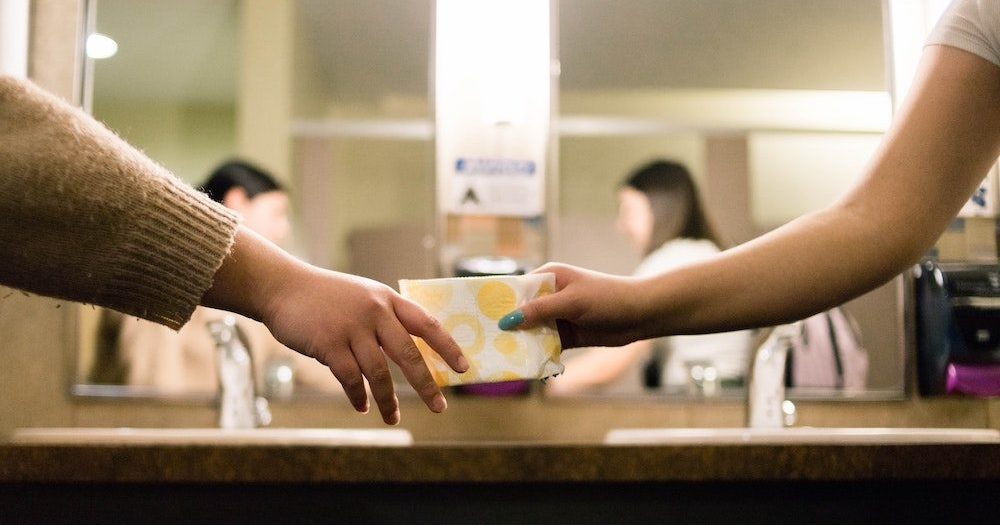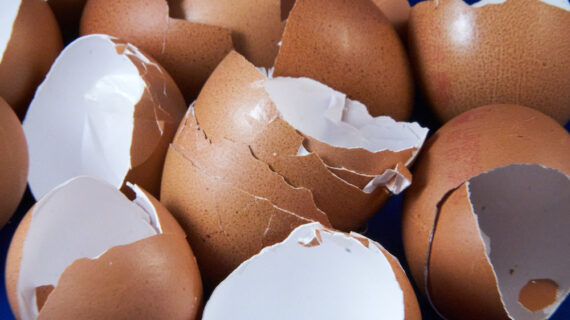
Advice from the founder of Peaceful Periods to help teen girls navigate their periods at school
Photo above by Mike Von via Unsplash.
We’re now two months into the new school year and for kids that means homework, earlier bedtimes and hanging out with friends. But the school year brings a unique challenge for teen girls: It means juggling the awkwardness of managing their period (in some cases getting it for the first time) while navigating the daily school-day stressors of tests, friendships and everything in between.
It’s already challenging being a student in this day and age. Adding on the monthly reminder of “womanhood” brings another level of complexity.
You remember those days, right? Hoping you didn’t leak through to your clothes and not wanting anyone to know, but needing help figuring out how to use the product again.
It’s nerve-wracking to say the least. Fellas, you can’t relate but try to imagine. Go ahead, we will give you a few moments. Hard to fathom, right?
The point is, it’s a stressful time for any girl from middle school to high school. I’m here to offer some tips on how you can help make it more manageable for your young lady. If nothing else, let this be a conversation starter to check in with her as she’s navigating the adolescent years.

Be Prepared and Track the Cycle
No one likes to be caught off guard. Encourage her to keep a small baggie in her bookbag or locker with the feminine hygiene essentials. This can be as simple as a Ziploc bag or you can have her choose a small bag she likes — after all, this is a very personal experience!
What’s important is the contents of the bag: Be sure to include a pad and/or tampon, an extra pair of underwear, wipes and anything else she may find helpful.
If her underwear become soiled, they can be placed in the bag and brought home to be washed. With this little bag already packed, she’ll know all of the essentials are in one place. This is especially helpful for girls who will get their periods for the first time this school year!
The baggie will help make it a smoother process when she’s in the school bathroom. Don’t forget to restock the bag and put it back in the bookbag or locker for the next time.
Additionally, be sure to note or encourage her to mark down when her period begins and ends. I like to do this on the calendar in my phone, but there are also plenty of good apps that help track and send reminders about when to expect it.
Keep in mind, the dates and length may fluctuate due to different stressors like sports, stress, sleeping patterns, weight changes or other health conditions, just to name a few. However, if these fluctuations continue long-term, you may want to consult a doctor as this can be a symptom of other health issues.
Tip: Come up with a codename for the bag and for her period, so you’re prepared if you need to talk about it discretely.
Partner With a Trusted Adult (teacher, nurse, counselor) and Offer Reassurance
One of the most important things you can do is remind her that her period is nothing to be ashamed of and that all women go through this process. She is not alone. Together, identify a trusted adult at school that she can go to if she needs help. Make this person aware and come up with a plan just in case further support is needed.
Remember: Just like our fingerprints are unique to us, so is her menstruation and it can change over time. The pain, discomfort and PMS symptoms differ from one girl to the next. So just because someone else had a different experience doesn’t mean what she’s feeling is invalid or exaggerated.
Listen to what she says. If she’s in pain, take it seriously as it can be a symptom of more serious condition like PCOS and endometriosis, which can lead to infertility and other health concerns.
Tip: While birth control pills can help curb severe menstrual pain, it’s not the only possibility. Explore other methods if her periods are severe, because using birth control medication to treat severe period symptoms can mask underlying reproductive conditions. Contact a women’s reproductive health specialist to learn more.

Eat Nutritious Food Before and During Menstruation
During menstruation, the uterus takes days to shed the lining that would have otherwise housed a fertilized egg. This is a very energy-intensive process and often leads to lethargy, feeling less social and other changes.
To combat this, you want to make sure she’s getting anti-inflammatory, nutrient-rich foods like chickpeas, leafy green vegetables, salmon and avocados. Avoid caffeine, sugar and fried foods, as these worsen pain and discomfort.
Drinking water and getting rest are also essential during this time. A good night’s sleep and limiting strenuous activity help the body to rest and regulate itself. Encourage her to listen to her body — and I encourage you to listen to her!
These are tips that I’ve come to rely on, and many of them are things I wish someone would have helped me with when I was a high school student. Take what works for you all and leave the rest. And be kind to yourself: Whether you are a mom, dad, aunt, grandma or other loving caregiver, no one expects you to be an expert.
What’s important is that you are being supportive and listening to her and her needs, while also realizing that she may not know nor be able to articulate what those needs are. Being of school-age is already difficult, especially while trying to manage hormones. This is her journey and you can be there to help her navigate it.













